Big Changes Possible for Olympic and Paralympic Rowing
Ed Moran and Ed Hewitt, row2k.com
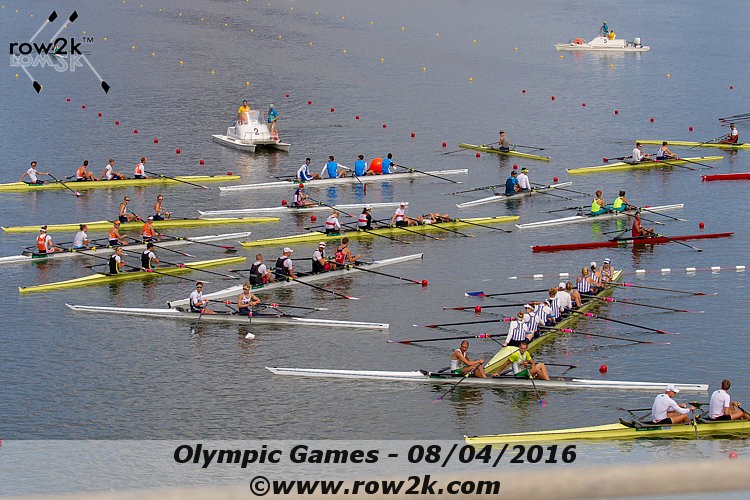
As in the case in every post-Olympic year, the world's rowing federations will gather at the 2017 FISA Extraordinary Congress to discuss and vote on changes to the rules that govern the sport, with an emphasis on how various changes will impact the next Olympic and Paralympic Games.
This year, that meeting will take place Feb. 9-12 in Tokyo, the host city for the 2020 Olympics. While change is always on the agenda, this year the FISA Extraordinary Congress will decide on several significant proposals, including a change to the Olympic program that may determine the future inclusion of the lightweight men's four, as well as changes to Paralympics rules, including changing the race distance from 1000 to 2000 meters, the design of the equipment used in racing, and impairment classifications.
row2k covered the potential changes to the Olympic event docket in December; the following update includes the most recent information on the proposals, as well as a close look at the potential changes for para-rowing. Central to the proposals are the stated IOC goals of balance, inclusion, and cost – specifically "universality" (with the goal of providing opportunities for smaller and non-traditional rowing countries to field crews in international competition), gender balance, and keeping the costs of hosting a Games affordable.
The IOC's Agenda 2020 also puts other issues before rowing federations, from a look at doubling up in events and even the potential for shorter course lengths to accommodate more venues to changes to Rule 50 that would allow advertising on socks. The Tokyo meeting will likely be a heavily debated and critical reckoning and juncture for international rowing.
Changes to the Olympic Program; Lightweight Men's Four on Block
In December, FISA distilled years of debate on how rowing could best meet the IOC's gender equality requirements down to two proposals, both of which would end the inclusion of the lightweight men's four in the coming Olympic schedule.
The FISA position document released in December included two options:
- Replace the LM4- with the W4- recommended by the FISA.
- Replace the M4-, keep the LM4- and add the LW4- recommended by Australia, Canada, China, Denmark and Switzerland
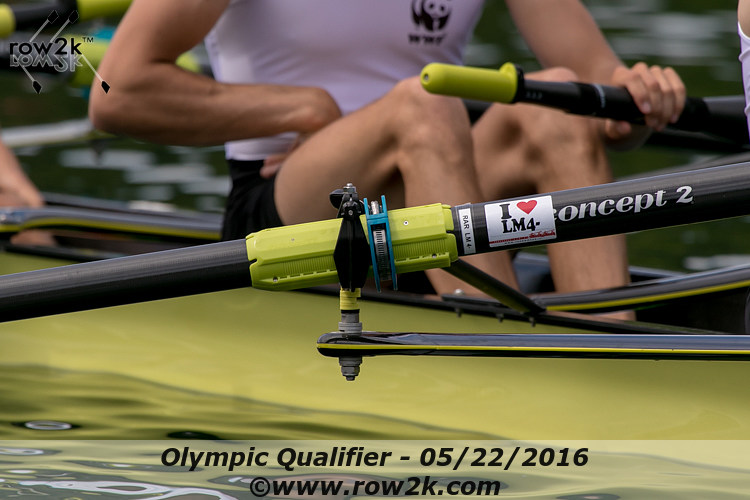
The considerations weighed during the process included not just what the rowing world thinks is best in terms gender equality and "universality" - -but also about presenting a proposal that FISA believes will be accepted by the IOC. Recent IOC statements about taking such decisions away from the governing bodies of each Olympic sport have created concern that, without a proposal acceptable to the IOC, the decision of how many and which events would be taken out of FISA's control.
The FISA document states:
"Over the past two years, alongside our consultation process with the member federations, we have worked very hard to build a constructive and trusting relationship with the IOC leaders and administration. Like the other sports, rowing must listen, react, adapt and exercise extreme care in our strategy with regard to how we position our sport.
"From all of our discussions with the IOC, the message is clear: they strongly question the inclusion of lightweight rowing in the programme of the Olympic Games.
"This is certainly not a new situation; the IOC has consistently questioned the inclusion of lightweight rowing in previous reviews of the Olympic Program but the context has dramatically changed. It is very clear to us, given this new context, the IOC will not consider an increase in the number of lightweight events, nor even the status quo of three."
FISA stated that it believed the non-FISA supported proposal would not satisfy the IOCs inclusion objectives and avoid the international body from rejecting the FISA Congress's ultimate position and taking complete control of the Olympic rowing schedule.
The non-FISA supported proposal "therefore carries a high risk that the number of rowing events will be reduced, as well as the possible exclusion of all lightweight events, resulting in a significant weakening of rowing's position within the Olympic movement," the FISA position document states.
Federation Positions
row2k reached out for comment from various national rowing federations, and had responses from the United States, Denmark, and Canada.
United States
USRowing Director of High Performance Matt Imes said that he could not specifically state how the U.S. would vote at the meeting, but that the USRowing Board of Directors approved a list of "tenets," Tuesday night (Feb. 1) that would:
- Place FISA in a strong working position within the Olympic Movement
- Maintain minimum of 14 Olympic events
- Create gender equity among events in Olympic program
- Maintain current athlete quota
- Retain opportunities for lightweight racing in the Olympic program.
Imes said that the USRowing position would fall along those lines, but said the general discussions at the meeting would also factor into the final U.S. position.
"There is still a lot information that gets discussed and revealed that will guide us toward a decision that would be most effective moving forward," Imes said.
In discussing the overall issue, Imes said that it is critical that FISA can present a position that is acceptable to the IOC, maintains the current Olympic program at 14 events, and does not reduce the current rowing athlete quota.
"The inclusion of lightweight rowing in 1996 was great, and there is no question that it provides universality," Imes said. "And we absolutely think lightweight rowing should have an opportunity to compete in the Olympic Games. The question is where does that fit amongst the overall sports and events.
"No one wants to see the elimination of the men's lightweight four," he said. "I think FISA has a commitment to keep rowing in a strong position within the Olympic movement, and wants to maintain 14 Olympic events.
"(FISA) does not want to see a reduction in the number of Olympic events. None of us wants to see a reduction," he said. "And we want to maintain the athlete quota. But, the days of the Olympics being the same core events, quadrennial after quadrennial, are changing."
Denmark
Speaking for Denmark's position, Danish rowing commissioner Henning Bay Neilsen said Denmark is in favor of the proposal that keeps the LTM4-, eliminates the M4-, and substitutes in the LTW4-.
"Danish rowing supports the 2020 IOC agenda describing overall goals for IOC of gender balance and universality with overall cost and attractiveness as secondary aims. A universal approach is cornerstone for development of sport and especially rowing," Neilsen told row2k.
"A vision must embrace the interests of small and big nations as well as developed and less developed countries. This is what a universality criteria also stands for. In terms of IOC criteria for 2020 Olympic Games, the choice is between M4- and LM4-, and considering universality it's a fact that M4- brings in far less universality than LM4-.
"To embrace gender balance, a women's four needs to be introduced to the program." He said the question should be about which women's event, the W4- or LW4-, contribute the to the IOC Universality criteria.
"Which four would be a bigger boost to women's rowing in Africa, Asia, and Latin America? And what about central and Eastern European countries? Which event would attract the most females to compete in international events? The LM4-/LW4 proposal secures universality."
Canada
A document written by Rowing Canada and posted in May 2016 makes Canada's positon clear on these as well as other issues; the document includes Rowing Canada's position on numerous proposals and potential changes facing rowing.
"Rowing Canada strongly supports the inclusion of lightweight rowing in the Olympic program in both its forms: sweep and sculling. It is difficult to accept the argument that the LM4- does not support universality while the LM and LW doubles do, without seeing any data to support this claim," the document states.
According to the Rowing Canada document, the federation is conducting an analysis that compares the universality and competiveness of the three lightweight events on the Rio program, including the men's light four and the men's and women's light doubles, and would be presenting the results to FISA.
Canada's position document also states: "The Lightweight Men's four event (LM4-) annually provides one of the most hotly contested and competitive events in the World Championship, and the same is true for each Olympics since it became an Olympic event in 1996.
"Over the past years, the LM4- has proved to be a popular event; in 2015 there were 23 entries in the LM4- versus, for example 12, for the M4x, and 11 in the W4x. There is a strong argument that in fact the LM4- has added to universality," the document states.
"While we fully recognize the challenges the IOC and Thomas Bach have with lightweight rowing, we believe it's up to us as leaders of the sport to stand up to the IOC in what we stand for. If the belief is that this is an important event for rowing, we should defend it and not allow external forces to fully control rowing's program.
"With respect to balancing the program, retention of the LM4- would require inclusion of the LW4-, if the goal is to mirror the men's events with women's events. Rowing Canada would support this option going forward as the additional women's event."
Para Rowing Proposals
In addition to the proposed changes being considered for the Olympic schedule, there are several proposed changes to the Para rowing rules under consideration. Most significant is the proposed change from a one-thousand meter event to a full two-thousand meters; other issues under review are changes to the weight and design requirements for racing shells, and adjustments to the para-classification guidelines for athletes; here is a FISA document outling many of the proposed rule changes.
The change in distance has long been advocated by para rowing coaches, who want the events to match all rowing events. The proposal should be viewed as beneficial to host cities that would normally have to move start platforms halfway down already existing courses.
"I am definitely in favor of having the para athletes race the same distance as the open team," said Community Rowing's Ellen Minzner, who coached the US Para-rowing crews at both the world championships and the 2016 Paralympics, winning silver medals over the last three summers, including in Rio.
"This will put us on par with the open team, and it's certainly a distance over which para rowers are more than capable of excelling," she said. Minzner said she also favors the changes to smaller, lighter racing shells over the heavy, wide shells are currently mandated by FISA regulations.
"I have heard the argument that the fixed seat events, the trunk and arms mixed double and the arms and shoulders single, will be too slow," she said. "But I'd say what slows those events down unnecessarily is not the race distance, but the fact that those para hulls must weigh 10kg more than the hulls in open events.
"Para rowing has come a long way since 2008, and we are seeing the finest athletes with disabilities emerge onto the international rowing scene. It's time we gave them the opportunity to prove themselves in a manner consistent with the training they are putting in."
Arms and shoulder men's single sculler Blake Haxton also welcomes the changes to the distance and equipment specifications.
"I think going to 2k is a great idea," said Haxton, who finished fourth in Rio. "It will open up more opportunities for para athletes to compete by alleviating the need for regatta organizers to move and re-anchor the start line."

He said he is also hoping to see the proposed changes to equipment passed.
"As I understand it the congress is also considering a change from the mandated para-boat to a standard racing single with the pontoons still providing support," he said. "I fully support the move as it would speed up the event and allow for para athletes to try the sport at clubs that don't have the para equipment."
In addition, Haxton is also watching proposed changes in para classifications. The changes would move away from classifying athletes into the three existing classes of Arms and Shoulders (AS), Trunk and Arms (TA), and Legs, Trunk and Arms (LTA) to P1, P2 and P3 designations.
Because not all athletes have the same use of their upper bodies and legs. Haxton feels the changes do not do enough to ensure fair racing and hopes to also see changes in the use of foot stretchers in single racing shells, and stricter enforcement of "strapping rules," which are intended to limit athletes with better use of upper body, or trunk, strength. The proposal calls for renaming sport classes from "current AS, TA, and LTA to PR1, PR2 and PR3 respectively to avoid confusion." Another FISA document notes that "These designations fit better with IPC protocol."
It is not clear, however, that renaming will bring clarity to the classifications in a practical sense, in that the current gray areas may persist. Haxton believes that the proposal "is really a way of acknowledging they haven't been classifying AS correctly. If this isn't coupled with either better strapping regulations or a way of ensuring that strapping regulations meant to minimize trunk use are actually enforced, the entire race boils down to a contest to see which country can get an athlete with superior trunk function classified into the category, who will then beat athletes that actually belong in the classification."
Haxton feels that the best solution would be to require the removal of foot plates to ensure no athlete can use leg strength in any way. Athletes who do not have full use of their legs, and are placed into the arms and shoulders categories, are required to have their legs strapped down.
"I'm in favor of removing the foot plate and firm lower extremity supports from the boat. If done correctly, then no matter how impaired the athlete they're all on a level playing field," he said.
USRowing Director of Para Rowing Tom Darling said USRowing is in full support of an immediate change in the race distance, but is seeking a delay of two years in the implementation of the proposed equipment standards "to give us more time to make an educated decision on the boat standards.

"The athletes want lighter boats, and we do too," Darling said. "But we have to see it. We have to look. We have to do some testing and have Blake row in (a lighter shell) and see if he actually can go faster. If he can't, then it makes no difference.
"In regards to the foot stretchers, I'm proposing that we look at that to determine if it is a factor in performance enhancment." Darling said foot stretchers are currently viewed as a "safety issue, so athletes can push away from the boat. I disagree with that. I think it's more of a hindrance to have your feet tied in, but we need to prove that as well."
Final IOC Decision to Come in June
Whichever proposal comes from the Extraordinary Congress meeting next week, the final result and change to the 2020 Olympic rowing schedule will not be known until the IOC makes its final pronouncement, which is expected to happen in June.
In its December position document, FISA was clear what they hoped to see happen in Tokyo and with the final IOC vote.
"The FISA Council has made this proposal following an extensive process that involved the member federations and the IOC, taking into consideration the difficult context in which we are operating.
"It addresses the main challenges to the rowing program expected from the Olympic Program Commission and the IOC Executive Board: gender equality and the lightweight category, and puts us in a stronger position to maintain events and athlete quota."
In addition to the links throughout the article above, some further reading:
- FISA Circular No. 1 of 2017 for other issues under consideration by FISA and the federations
- Proposals for Olympic rowing boat classes examined, from FISA February 3 2017
Update, February 8th: FISA will be streaming the Extraordinary Congress live, link below:
The 2017 #FISACongress will be live video streamed and live blogged. Both will be available here: https://t.co/kVsyNxAJT4
— World Rowing (@WorldRowing) February 8, 2017
If you enjoy and rely on row2k, we need your help to be able to keep doing all this. Though row2k sometimes looks like a big, outside-funded operation, it mainly runs on enthusiasm and grit. Help us keep it coming, thank you! Learn more.
Comments | Log in to comment |
- Bont Rowing
- Calm Waters Rowing
- Concept 2
- Craftsbury Sculling
- The Crew Classic
- CrewLAB
- Croker
- Durham Boat Co.
- Empacher
- Faster Masters
- Filippi
- Fluidesign
- h2row.net
- HUDSON
- Live2Row Studios
- Nielsen-Kellerman
- Oak Ridge RA
- Peinert Boat Works
- Pocock Racing Shells
- Race1 USA
- RowKraft
- Rubini Jewelers
- Vespoli USA
- WinTech Racing
- Bont Rowing
- Calm Waters Rowing
- Concept 2
- Craftsbury Sculling
- The Crew Classic
- CrewLAB
- Croker
- Durham Boat Co.
- Empacher
- Faster Masters
- Filippi
- Fluidesign
- h2row.net
- HUDSON
- Live2Row Studios
- Nielsen-Kellerman
- Oak Ridge RA
- Peinert Boat Works
- Pocock Racing Shells
- Race1 USA
- RowKraft
- Rubini Jewelers
- Vespoli USA
- WinTech Racing






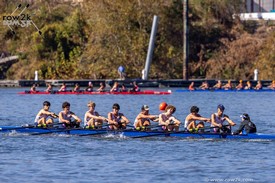
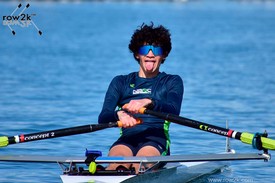
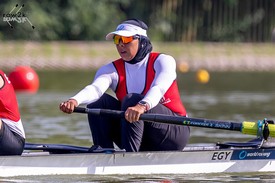
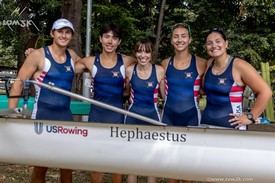








02/05/2017 7:49:48 AM
The IOC's concerns about lightweight rowing seem baffling. Nobody blinks at the plethora of weight classes in wrestling and boxing. And team and individual events in gymnastics seem redundant, simply combine the results. The Tour de France isn't run twice, once for GC and once for team standings.
Perhaps an alternative for rowing to consider would be to repackage its Olympic program to better suit its own needs. How about holding an Olympic qualification regatta (possibly named the World Championships) at some point (open to debate) in the months before the Olympics? The top 12 in each class would go to the Olympics for just semis and finals. This might reduce rowing's athlete count sufficiently to satisfy the IOC yet achieve gender equity, and maybe even allow FISA to add back in events which are presently non-Olympic. It would also eliminate heats, quarterfinals, repechages from the Olympic program: they would be in the "World Championship" qualifying event.
If 12 seems too restrictive, then maybe 15 go to the Olympics and trim the field to 12 via a time trial, as is done at Henley.
02/04/2017 12:41:35 PM